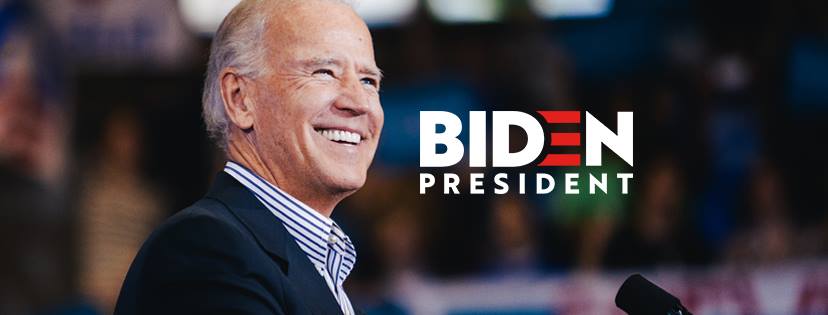
The first outlines of what a Biden administration’s national security policy and defense budget are coming clear.
The good news is that nothing signals a major change in strategy, so deep cuts and radical restructuring are unlikely. The bad news is that the administration’s overwhelming emphasis would be on domestic affairs and there appears to be deep skepticism about the defense budget.
The key points come from four primary documents: the Democratic party platform, Biden’s acceptance speech, Biden’s national security article in Foreign Affairs, and material on the Biden campaign website. Many campaign surrogates have made additional points, but these cannot be regarded as definitive.
No Change To Strategy
The good news for defense is that nothing said signals a major shift in strategy. Biden talks repeatedly about reasserting US global leadership. Indeed, his Foreign Affairs article is entitled: “Why America Must Lead Again.” He cites “national security challenges from North Korea to Iran, from Syria to Afghanistan to Venezuela.” He notes that “China represents a special challenge” and that Russia seeks to undermine liberal democracy. This signals continuity with the Obama strategy and, by implication, with Trump’s (although both the White House and the Biden campaign would be loathe to admit that).”
Multiple statements pledge the primacy of diplomacy and the avoidance of unnecessary foreign engagements. Nevertheless, none of these documents contain the kind of rhetoric that would signal a major retrenchment in foreign affairs, and a concomitant large defense cut. Indeed, Biden pledges that: “the United States has the strongest military in the world, and as president, I will ensure it stays that way.”

Mark Cancian
Ending The “Forever Wars”
Biden says he will end the forever wars in Afghanistan in the Middle East, which have cost us untold blood and treasure. As he has long argued, Biden will bring the vast majority of our troops home from Afghanistan and narrowly focus our mission on Al Qaeda and ISIS. Ironically, this is what Trump is trying to do, and for which he is receiving much pushback from the national security establishment. It’s not clear what Biden’s pledge means in practice since the “vast majority” of troops have already come home. Indeed, the statement reads like it was written during the Afghanistan policy debates of 2009, when Biden argued for just such a policy instead of a surge.
A Biden administration will likely run into the same dilemma that the Obama administration did; it may want to narrow the mission and limit the troops but also safeguard the political, social, and economic gains that Afghanistan has made in the last 20 years. “Democrats are committed to a durable and inclusive political settlement in Afghanistan that ensures that al-Qaeda isn’t allowed to reconstitute, the Islamic State (ISIS) isn’t allowed to grow, and the international community can help Afghans safeguard hard-fought gains, especially for women and girls.” A narrow focus on counterterrorism requires letting go of these goals.
Focus On Domestic Programs
This isn’t the place to discuss the many domestic initiatives the Democratic administration would probably want to take on: expanded health coverage, subsidized college tuition, clean energy assistance, childcare, eldercare, etc. For perspective, these issues overwhelm any discussion about national security in Democratic circles. The party platform, for example, has barely two pages on defense out of 92. The Biden campaign website has 37 policy tabs, including “the Biden plan for military families” and “the Biden plan for veterans,” but nothing specifically on defense. There is a tab, “the Biden plan for restoring American leadership,” which mostly focuses on domestic issues, though it does have a few items on foreign policy.
Skepticism About The Defense Budget
The party platform is blunt: “We can maintain a strong defense and protect our safety and security for less.” The big question is how big the cut might be, and none of the documents give any insight here. A consensus in the defense community seems to be converging on a cut of around 2%. However, a 2% cut in nominal dollars, in an environment with some inflation, means a real 4% cut.
One thing Democrats vow not to cut is pay and benefits: “We will ensure pay and compensation keep pace with the current economy.” That’s good news for military personnel. The Obama administration capped military compensation for a few years during the drawdown. However, a Biden administration will be tempted to do the same since a weak economy and a smaller force would allow some savings here.
Listening to the chatter among democratic defense intellectuals, it seems we should expect a Gates-like cut early on. As a reminder: In 2009 then-Sec. Gates conducted centralized and tightly controlled process to cut defense consistent with the new Obama administration’s priorities. As a budget effort, it was successful, killing several major programs like the Army’s Future Combat System and the Marine Corps’ Expeditionary Fighting Vehicle.
The platform targets “legacy platforms.” “Rather than continuing to rely on legacy platforms that are increasingly exposed and vulnerable, Democrats support funding a more cost-effective, agile, flexible, and resilient force with modern transportation and logistics capabilities that can operate in more contested environments.” This is quite close to what is in the Trump administration’s National Defense Strategy. The problem has always been identifying “legacy platforms.” Strategists target aircraft carriers, manned aircraft and armored vehicles. However, taking on those platforms means attacking the core culture of the military services. More likely, the services will retire older platforms early in order to keep buying new platforms.
Some nuclear modernization programs will be at risk. Oddly, the party platform does not mention nuclear weapons at all. Biden’s website talks about “reducing the role of nuclear weapons,” and the Foreign Affairs article notes the importance of arms control, but there’s nothing about cutting nuclear modernization, which is a common theme among progressives. (However, the Obama administration spoke of this as well and then committed wholeheartedly to rebuilding the nuclear triad as the price for obtaining New START.)
Greater Focus On Nontraditional National Security Threats
Past Democratic administrations have funded some priorities in the Department of Defense under an expanded definition of “national security.” To progressives, funding initiatives for climate change and pandemics in the Pentagon is a sensible adaptation to meet dire threats. Defense hawks will view it as a diversion from core defense missions. This will likely be the equivalent of the border wall controversy of the Trump administration but with the roles reversed.
Arm Sales A Big Loser
The Trump administration actively encourages arms sales as a boon to US manufacturing and employment. The Democrats have signaled that they will see arms sales through the lens of human rights. Expect a freeze on sales to Saudi Arabia as long as the war in Yemen continues. However, some in the party may still look to the jobs that arms sale generate in the U.S.
Lots Of Rhetoric About Rebuilding Alliances
A Biden administration would be like a warm bath for the European allies. Like most of them, Biden is a social democrat and internationalist. There will be no more rhetoric about America first, no sandpapering of heads of state at NATO gatherings. The proposed troop moves within Europe would stop. These moves are expensive and have little strategic rationale. However, some of the drawdown might occur.
The United States will still push for the NATO goal of 2% of GDP but, in the end, would accept whatever the Europeans do. Although the United States would probably be doing less to defend Europe, the Europeans would accept that trade-off.
The Pacific allies will certainly prefer the internationalist perspective of a Biden administration rather than Trump’s transactional approach. No more demands that South Korea pay for US troops stationed there. However, these allies are likely to be more nervous about any cuts to the defense budget because China is a more immediate threat to them than Russia is to most Europeans.
The Gulf states and Israelis will be skeptical. The party platform specifically targets Saudi Arabia and explicitly withdraws from the Middle East. Israel might be affected by the anti-Zionist sentiments among the Democratic left. Indeed, there is nothing in the documents about support to Israel.
Above All, Uncertainty
There are no specifics about defense programs or important budget issues. Nothing, for example, about eliminating the Overseas Contingency Operations account, which had figured in some progressive defense cuts. A future Biden administration is a nearly blank canvas onto which many groups are trying to paint their preferred strategies. Here Biden follows the approach of the Clinton campaign: if you’re the front runner, say as little as possible. Stick to lofty platitudes.
It’s unlikely that more details will come out. What we have now is probably as much concrete information as there will be until Biden publishes an amendment to the FY 2021 budget in March 2021, should he get the opportunity to do that.
A large group of former Republican national security officials have endorsed Biden, arguing that he would be a better choice for handling the nation’s national security. Time will tell whether the policies of a Biden administration, if there is one, tilt toward their views or whether Biden’s policies are so influenced by Democratic progressives that these Republicans come to regret their action.
Mark Cancian, a member of the Breaking Defense Board of Contributors, was a Marine colonel and senior official at the Office of Management and Budget before he joined the Center for Strategic and International Studies.
Laser weapons and future tanks: European Defense Fund to spend $1.3B on 54 projects
Development of more novel weapon systems includes the second phase launch of the Tactical Advanced Laser Optical Systems (TALOS) project (TALOS-TWO), designed to support a long term target of developing 100 kilowatt-class laser weapons by 2030.



























